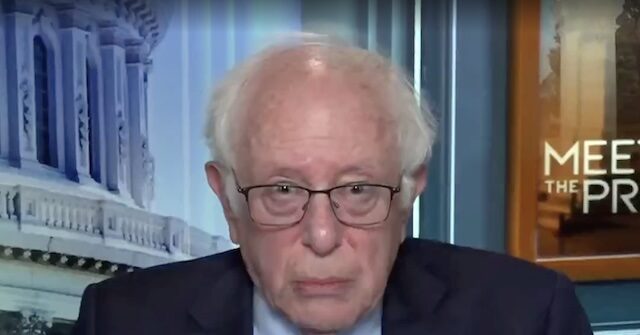On a recent appearance on NBC’s “Meet the Press,” Senator Bernie Sanders (I-VT) voiced strong concerns regarding President-elect Donald Trump’s comments suggesting that members of the January 6 committee should face jail time. Sanders characterized Trump’s remarks as those of a “tin-pot dictator,” warning that such rhetoric poses a threat to American democracy and civil liberties. He emphasized the importance of the FBI and the Justice Department in safeguarding the rights of citizens and ensuring the protection of the democratic process. Sanders’ comments reflect a broader apprehension among some lawmakers about the implications of Trump’s stance on political dissent and accountability.
During the interview, host Kristen Welker raised the issue of potential preemptive pardons that the White House might consider for those involved in clashes with Trump. In response to Welker’s questioning about whether President Biden ought to preemptively pardon the entire January 6 committee, Sanders advocated for serious consideration of this action. He labeled Trump’s suggestion to jail committee members as “outrageous,” reinforcing his view that such measures are emblematic of authoritarian behavior. This discussion reflects the ongoing tensions between Trump and those who investigate him, highlighting the stakes involved in political accountability and governance.
Sanders underscored the fundamental principle that democratic societies do not imprison elected officials or individuals engaged in investigations merely for their opposition. The senator’s remarks are indicative of a wider concern among progressives about the erosion of democratic norms in the face of perceived threats from political leaders who use their power to retaliate against critics. This situation poses critical questions regarding the relationship between political authority and civil liberties, showcasing how divisions in American politics may undermine the foundations of democratic governance.
Furthermore, Sanders’ statements resonate with historical instances where authoritarian leaders have attempted to silence opposition through intimidation and punitive measures. He illustrated that such actions have deep-rooted consequences for the political landscape and public trust in governmental institutions. Sanders called for a united front to defend democratic ideals, emphasizing that individuals and institutions must stand resolute against tactics that seek to undermine democratic processes, such as harassment or punitive actions against dissenters.
The senator’s appeal to protect civil rights is particularly resonant given the polarized nature of contemporary American politics. As political leaders navigate this charged environment, the implications of their words and actions hold significant weight. Sanders’ comments suggest a need for vigilance and proactive measures to safeguard democratic systems, particularly in light of threats that may arise from political figures who prioritize personal vendettas over the rule of law. Ultimately, this ongoing dialogue highlights the critical role of leadership in maintaining the integrity of democracy in the United States.
In conclusion, Sanders’ condemnation of Trump’s threats against the January 6 committee underscores the importance of upholding democratic ideals and protecting civil liberties. His calls for the Biden administration to consider preemptive pardons reflect a desire to shield those engaged in legitimate political investigation from retribution. As the American political landscape continues to evolve, the challenge remains for leaders on both sides to foster an environment of respect for democratic processes and dissent, ensuring that political accountability does not devolve into authoritarianism. The actions taken in response to these issues will ultimately shape the future of American democracy.

